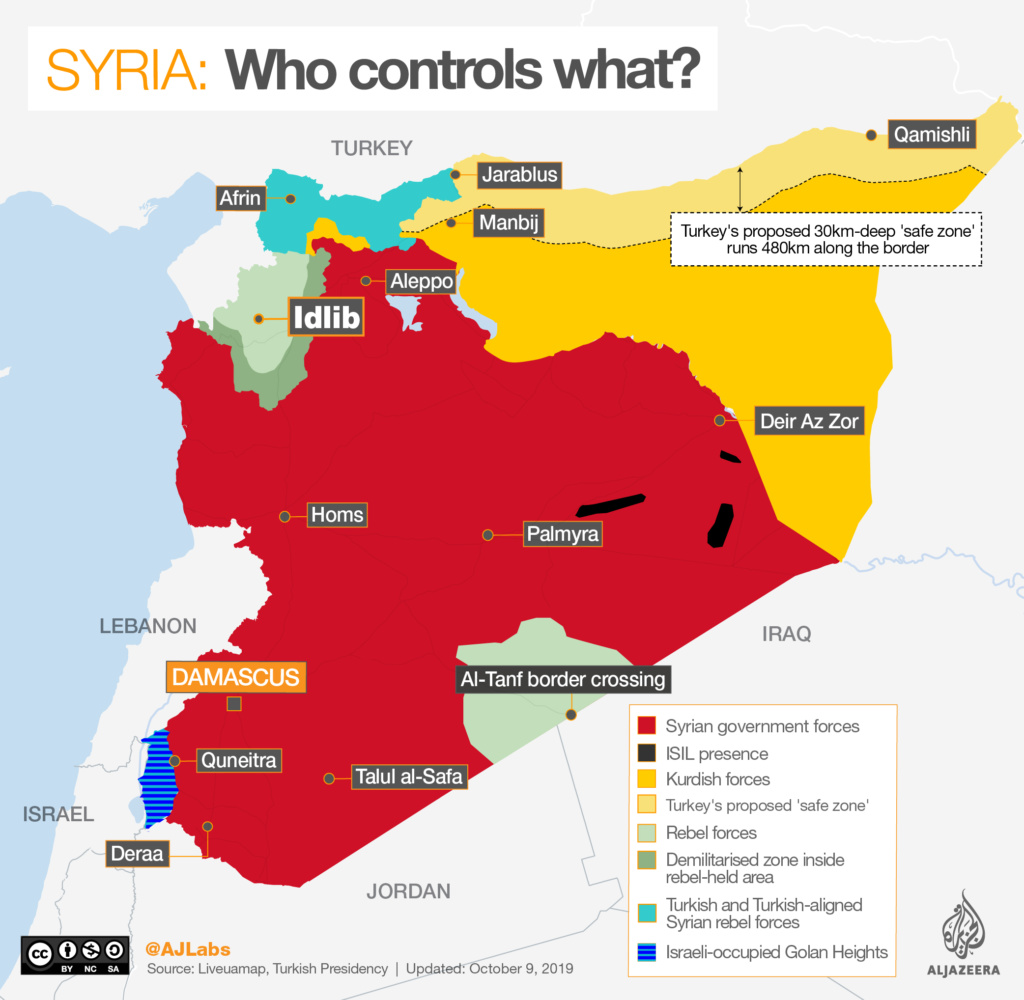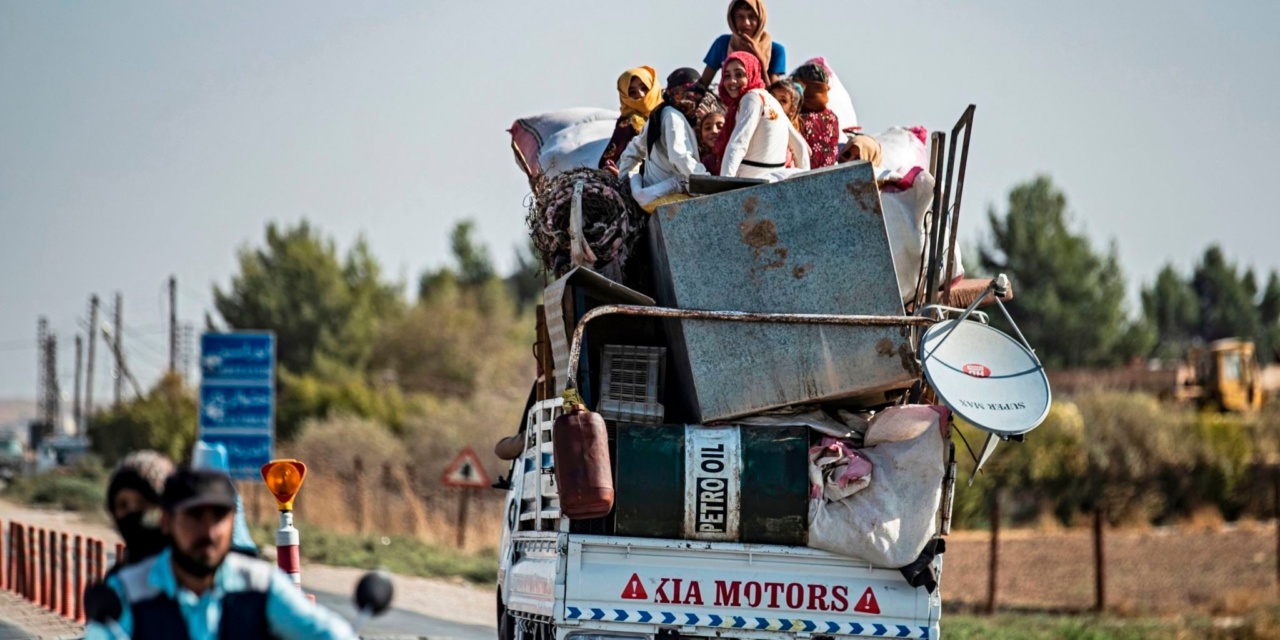An estimated 60,000 civilians have fled Turkish attacks on northeast Syria
President Recep Tayyip Erdoğan has defiantly told the international community that Turkey will not halt its military offensive against Kurdish positions in northeast Syria.
In his starkest warning, Erdoğan addressed the European Union, “If you try to frame our operation there as an invasion, our task is simple: we will open the doors and send 3.6 million migrants to you.”
Earlier on Tuesday, the EU objected to Turkish bombing and shelling and said any attempt at “demographic change” in mainly-Kurdish areas was unacceptable: “[We] will not provide stabilization or development assistance in areas where the rights of local populations are ignored.”
Turkey and the EU agreed in 2016 to 6 billion euros ($6.6 billion) of European support funds for the refugees. Ankara assumed the responsibility of discouraging further movement through the Aegean Sea into Europe.
Turkish officials claim only 2.2 billion euros had been sent by the EU as of June, with Ankara declaring that it has spent $40 billion on the displaced Syrians.
Speaking at an Ankara meeting of his ruling Justice and Development Party (AKP), Erdoğan also lashed out at Saudi Arabia — “Look in the mirror and answer for what it has done to Yemen” — and Egypt.
The Turkish President again framed the cross-border attacks, targeting the Kurdish militia YPG, as the securing of a “safe zone”. Ankara has declared an area of 480 km (270 miles) along the Turkish-Syrian border, extending east of the Euphrates River to Iraq, and 30 km (19 miles) deep for resettlement of the Syrian refugees.
“For those who want to return to their country but don’t have a home left anymore, we plan to build settlements for 1 million people with international financing,” he said.
Most of the refugees are Arabs, raising issues of possible conflict and the EU’s concern over “democraphic change” in mainly-Kurdish territory.
Kurdish groups have declared an autonomous authority across “Rojava”, the Kurdish cantons of Kobani and Cezire.

Map: Al Jazeera
Erdoğan claimed 109 “terrorists” had been killed: “God willing, we will crush these snakes’ heads quickly. What we are trying to do is prevent the establishment of a terrorist state on our southern border. This cannot happen.”
The Turkish military, which later raised the toll to 174 “terrorists”, said it captured 11 villages near the border towns of Ras al-Ain and Tel Abyad on Thursday, declaring attacks on 181 YPG targets.
Officials said six civilians were killed, including two children, and 70 injured by YPG rocket and mortar fire into southeast Turkey.
Explosions were reported in Akçakale and the Ceylanpınar district of Şanlıurfa.
The Kurdish-led, US-backed Syrian Democratic Forces said nine civilians were slain by Turkish attacks.
No Agreement in Security Council
The five European members of the UN Security Council — the UK, France, Germany, Belgium, and Poland — said in a joint statement, “Renewed armed hostilities in the northeast will further undermine the stability of the whole region, exacerbate civilian suffering and provoke further displacements.”
US Ambassador Kelly Craft, pushing back Donald Trump’s initial acceptance of the Turkish operations, said the US did not in “any way” endorse the attacks: “Failure to play by the rules — to protect vulnerable populations and guarantee ISIL [the Islamic State] cannot exploit these actions to reconstitute — will have consequences.”
But the Security Council failed to agree on a statement. Russia’s Ambassador Vassily Nebenzya told reporters that it must address broader issues about Syria’s 103-month conflict.


Erdoğan’s refugee threat is a good move. It would have little-to-no effect if EU leaders simply adopted the attitude of the people to whom the EU currently outsources migrant management, but alas, we don’t really have good leaders. Such harsh politics are for impoverished brown people; out of sight, out of mind. Not us civilized Europeans or something.